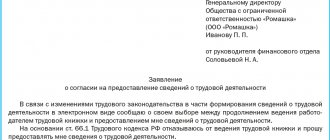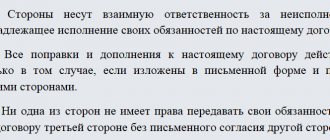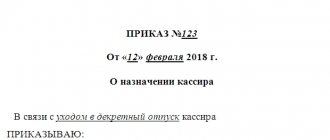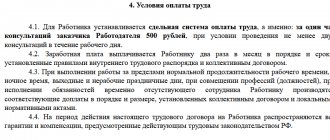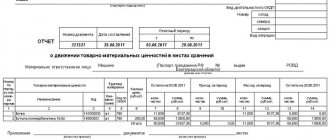Fundamental Principles
General requirements for the execution and subject of the contract are regulated by Ch. 7 labor legislation of the Russian Federation. Based on the standards of the Labor Code of the Russian Federation, the collective agreement should disclose the following provisions:
- wages (its amount, form, payment of bonuses, salary increases based on inflation, etc.)
assignment of compensation and benefits- social guarantees for workers, benefits for them
- workers' education
- working hours and time for rest (being on vacation)
- provisions on labor protection (including for women bearing a child and raising young children)
- execution of the agreement, procedure for making adjustments
- powers and responsibilities of participants, other provisions
Amendments to the collective agreement
A little about the collective agreement
A collective agreement is a legal act that regulates social and labor relations in an organization and is concluded by employees and the employer represented by their representatives (Article 40 of the Labor Code of the Russian Federation). Such an agreement can be concluded in the organization as a whole, in its branches, representative offices and other separate structural units. The content and structure of the collective agreement are determined by Art. 41 of the Labor Code of the Russian Federation, however, taking into account the financial and economic situation of the employer, it may establish benefits and advantages for employees, working conditions that are more favorable in comparison with those established by laws, other regulatory legal acts, and agreements. The procedure for developing a draft collective agreement and concluding a collective agreement is determined by the parties in accordance with the Labor Code of the Russian Federation and other federal laws. Amendments and additions to the collective agreement are made in the manner established by the Labor Code of the Russian Federation for its conclusion, or in the manner established by the collective agreement (Article 44). Please note that a collective agreement is a bilateral agreement, and the employer cannot unilaterally change its provisions.
Making changes
If a situation arises when it is necessary to make changes to a collective agreement or add any conditions to it, the first thing you need to do is look into the agreement itself and clarify whether these procedures are spelled out there. If not, then you must act in accordance with the requirements of the Labor Code of the Russian Federation. 1. Proposal to amend the collective agreement. Any of the parties - both the employer and the employees - has the right to take the initiative by starting collective negotiations to change the terms of this agreement. To do this, representatives of the initiating party must send to representatives of the other party a written proposal in any form to begin collective negotiations with a draft amendment attached. Representatives of the party who received such a proposal are required to enter into negotiations within seven calendar days from the date of its receipt (Part 2 of Article 36 of the Labor Code of the Russian Federation). Consent to enter into negotiations to amend the collective agreement must be expressed in writing, indicating the representatives and their powers. The day following the day the initiator receives the response is the moment the negotiations begin (Part 2 of Article 36 of the Labor Code of the Russian Federation). If the negotiations were initiated by representatives of employees, simultaneously with sending the proposal to the employer, it is also necessary to notify all other primary trade union organizations about this and, within the next five working days, create a single representative body with the consent of the remaining trade unions or include their representatives in the composition of an existing body. If within the specified period these organizations do not inform about their decision or refuse to send their representatives to the single representative body, then collective negotiations begin without their participation, however, within a month from the date of the start of negotiations, they retain the right to send their representatives.
Note!
In connection with the start of collective negotiations, the employer is obliged to release employees participating in collective negotiations from their main jobs while maintaining average earnings for a period determined by agreement of the parties, but not more than three months (Part 1 of Article 39 of the Labor Code of the Russian Federation). In addition, the employer does not have the right to subject employees participating in negotiations to amend the collective agreement without the prior consent of the body that authorized them to represent the interests of the labor collective to disciplinary action, transfer to another job, or dismiss on its own initiative. The exception is cases of termination of an employment contract for committing misconduct, for which, in accordance with the law, dismissal from work is provided.
If the initiator of the changes is the employer, a proposal to begin negotiations is sent to the elected body of the authorized trade union organization. What if there is no trade union, for example if it disbanded during the contract? In this case, you need to contact employees so that they choose their representatives. To do this, the employer himself organizes a general meeting (conference) of the workforce, at which employees can make this choice. 2. After the parties have entered into negotiations, a commission is created (Part 7, Article 35 of the Labor Code of the Russian Federation). Perhaps it had already been created earlier - during negotiations on concluding a collective agreement. However, if some members dropped out of the commission or the term of its work was limited by local regulations, it is still necessary to form the commission again.
It is she who will determine the timing, place, procedure for conducting negotiations and developing a draft amendment to the agreement. To correctly formulate amendments to the contract, the parties will need various information, and also, possibly, the help of experts and specialists. Remember that the parties must provide each other no later than two weeks from the date of receipt of the relevant request with the information they have necessary for collective bargaining. This is the requirement of Art. 37 Labor Code of the Russian Federation. Moreover, if the information relates to a secret protected by law (state, official, commercial and other), participants in collective bargaining and other persons associated with the conduct of such negotiations should not disclose it, otherwise they will not be able to avoid disciplinary, administrative, civil or criminal liability.
For your information. All costs associated with participation in collective negotiations are compensated in the manner established by labor legislation and the collective agreement. Payment for the services of experts, specialists and intermediaries is made by the inviting party, unless otherwise provided by the collective agreement (Part 2 of Article 39 of the Labor Code of the Russian Federation). Typically these costs are borne by the employer.
3. Meet deadlines. The parties must sign changes to the collective agreement within three months from the date of the start of negotiations (Part 2 of Article 40 of the Labor Code of the Russian Federation). If during the negotiations no agreed decision is made on all or individual issues, then a protocol of disagreements is drawn up. The settlement of disagreements that arose during collective negotiations to conclude or amend a collective agreement is carried out in the manner established by Chapter. 61 “Consideration and resolution of collective labor disputes” of the Labor Code of the Russian Federation. Since the procedure for resolving labor disputes is quite complex, it is better for the parties to try to resolve all disagreements through negotiations. 4. Signing. After the draft amendments to the collective agreement are agreed upon by the parties, it is signed by representatives of the employer and employees. On the employer’s side, it is signed by the head of the organization or an authorized person, and on the employees’ side by the chairman of the trade union organization or another representative elected at the general meeting by secret ballot. 5. Register the changes. Like the collective agreement itself, changes to it must be registered with the relevant labor authority. For example, in Moscow, notification registration of collective agreements and their changes is carried out by the Public Relations Committee of the Moscow Government <1>, and in St. Petersburg - by the Committee on Labor and Employment. Let us say right away that in almost every subject and administrative district there are administrative regulations for the provision of state (municipal) documents, which determine the list of documents and the number of their copies required for registering an agreement. ——————————— <1> https://www.kos.mos.ru/kos/ru/uved_registrat/o_6681.
Note. The employer must submit changes to the collective agreement for registration within seven days from the date the parties sign the changes.
When carrying out registration, the labor authority identifies conditions that worsen the situation of workers in comparison with labor legislation.
If any are identified, this will be reported to the representatives of the parties who signed the agreement and to the relevant state labor inspectorate (Part 3 of Article 50 of the Labor Code of the Russian Federation). Such conditions are considered invalid. Instead, the parties will be required to follow the provisions of labor legislation.
Employer's liability
Unfortunately, current legislation provides for liability only for the employer and his representatives. That is, if the employer avoids participating in negotiations on the conclusion, amendment or addition of a collective agreement or delays the negotiations, Art. 5.28 of the Administrative Code of the Russian Federation for such actions provides for liability in the form of an administrative fine from 1000 to 3000 rubles. An employer can be punished with the same fine for failure to provide information required for collective bargaining within the prescribed period (Article 5.29 of the Code of Administrative Offenses of the Russian Federation). And if the employer or his representative completely refuses to make changes to the collective agreement, sanctions are possible under Art.
5.30 Code of Administrative Offenses of the Russian Federation - fine from 3,000 to 5,000 rubles. In addition to administrative liability, the employer may bear financial liability if it does not comply with the procedure for amending the collective agreement. There is plenty of evidence of this in judicial practice. B. filed a claim with the Nadym City Court against the LLC to recover payment for travel to and from the vacation spot for 2010-2011. and financial assistance for recovery. In support of the claim, B. indicated that, according to the provisions of the collective agreement of the LLC, the employer is obliged to annually pay the employee and his dependent family members for travel to and from the place of vacation, as well as to provide annual financial assistance for health improvement before the vacation. In 2010 - 2011 upon returning from vacation, B. handed over to the employer advance reports on travel expenses to and from the vacation spot for herself and her minor child, with the necessary documents attached, but the defendant did not compensate her for the travel expenses incurred and did not pay financial assistance for her recovery. The representative of the LLC did not admit the claims, explaining that the payments required by the plaintiff are indeed provided for by the collective agreement if the company has the financial and economic capabilities, however, due to the difficult financial situation at the enterprise, the payment of these social compensations has been suspended since the second quarter of 2010. The City Court refused B. in satisfying the requirements for the collection of financial assistance, and collected the costs of travel to the place of rest. Disagreeing with this court decision, B.
filed an appeal. Having studied the case materials, the judicial panel of the appellate instance considered that the earlier court decision was subject to cancellation and here’s why. Clause 7.2.1 of the collective agreement of the LLC for 2010 - 2012. the employer provides for payment of expenses incurred by the employee for travel to the place of vacation and back by any type of transport. In addition, the employer pays the cost of travel to family members who are dependent on the employee. Clause 7.1.1 of the collective agreement provides for the employer’s obligation to provide financial assistance for the recovery of annual leave to employees who have worked for at least two years in this organization. The section “Terms of remuneration” (clause 4.4) of the employment contract concluded by the defendant with the plaintiff provides for the payment of financial assistance to the employee for health leave. The city court's conclusion regarding the legality of the suspension of social benefits provided for by the collective agreement for vacations due to the difficult financial situation of the LLC is based on an incorrect interpretation of labor legislation. The appellate court justified its position as follows. In accordance with Art. 44 of the Labor Code of the Russian Federation, changes and additions to the collective agreement are made in the manner established by the Labor Code of the Russian Federation for its conclusion, or in the manner established by the collective agreement. This procedure is not established by the collective agreement; the commission for regulating social and labor relations is not vested with the authority to change the collective agreement. In this regard, changes to the collective agreement of the LLC, including with regard to the temporary suspension of certain clauses of the collective agreement, could be made in the order in which the collective agreement was adopted - at a conference of the labor collective. The LLC did not provide evidence indicating that changes were made to the collective agreement in the manner prescribed by law, therefore, the arguments of the appeal about the illegality and unfoundedness of the defendant’s suspension of social payments are justified. Under such circumstances, the decision of the court of first instance regarding the refusal to satisfy the claims for the recovery of financial assistance for recovery is subject to cancellation, and the claims of B.
— satisfaction (Appeal ruling of the court of the Yamalo-Nenets Autonomous District dated 06/04/2012 in case No. 33-1136/2012).
Finally
The procedure for amending a collective agreement is not that complicated if you strictly follow the provisions of the Labor Code. Do not be afraid to adjust the provisions of the contract if the institution has grounds for this. After all, if, for example, new guarantees have appeared in the legislation for employees, but they are not provided for under the collective agreement, there is a high probability of labor disputes arising, and this is a waste of time, effort and money.
Legal standards
The procedure for amending the collective agreement is regulated by Art. 44 Labor Code of the Russian Federation. It is as follows:
Changes can be made in the same manner in which the agreement was concluded. Adjustments are made through collective bargaining.- The conditions for making changes may be determined by the collective agreement itself.
Changes may come into effect from the moment the relevant order is issued. A specific start date for the changes may also be set.
If the adjustments lead to the fact that the powers of the organization’s employees are infringed, then the changes will not have legal significance and will not be applied in their work activities.
Amendments and additions to the collective agreement: sample order
Approval of proposed innovations in the agreement between the employer and staff is impossible without issuing an order for the enterprise. A mandatory procedure is the signing of this order by all participants in the commission responsible for finding a compromise version of the collective agreement.
Changes to the collective agreement - how to issue an order:
- the text must contain the main details of the amended collective agreement;
- the name of the employing enterprise is indicated;
- the participants in the procedure for discussing the draft new collective agreement on both sides are listed;
- listing in the text of the order the reasons for innovations;
- changes introduced are reflected item by item;
- the scheme for the entry into force of the updated version of the document is stipulated.
When documenting new provisions of the collective agreement, it is necessary to monitor the compliance of the proposed norms with current legislation.
Sample order for amendments to a collective agreement
Reasons for making changes
Among the most common reasons are the following:
- The organization changes its name.
- The organizational and legal orientation of the enterprise is changing.
- Legislators have changed some provisions relating to material or social guarantees of citizens. At the same time, outdated norms are contained in the current collective agreement.
- When the class of working conditions of an economic entity changes.
- If management has decided to improve working conditions for employees.
- Financial difficulties of the enterprise, due to which the implementation of additional guarantees for workers has become impossible.
Who is allowed to change the document
A collective agreement is concluded between the employer and citizens working at the enterprise. The initiators of making adjustments to the current agreement can be any of its participants. To do this, you will need to set out in writing the essence of the necessary changes and send the generated document to the other parties to the contract. Within 7 days, the proposal must be reviewed, and a written response must be sent to the initiator.
If the proposal is approved, a date is set for discussing the changes made and the composition of the working commission to approve the updated collective agreement.
How to extend the collective agreement?
An extension of the collective agreement can be formalized with the consent of the parties to the transaction - the person providing the workplace and the employees. To extend the collective agreement, a meeting consisting of the parties to the transaction is convened. At the meeting, they discuss options for extending cooperation, as well as other nuances that perhaps one of the parties wants to change.
The legislation provides for two options for extending the validity of the collective agreement:
- by drawing up a new collective agreement;
- by drawing up an additional agreement to an existing agreement.
In most cases, the most convenient way to prolong cooperation between subordinates and the employer is to draw up an additional agreement. The new document requires information:
- for what period is the validity of the collective agreement extended? The prescribed period must not exceed 36 months;
- data contained in the main collective contract - company name, personal data of the parties (full name, passport data, position) and so on;
- day of registration of the additional agreement;
- special number assigned to the act;
- date of acquisition of legal significance.
Additional agreements on the extension of collective agreements are drawn up in accordance with the internal rules of the legal entity.
According to the law, an additional agreement is subject to mandatory registration, just like the main agreement of a general form. It is allowed to register in additional terms of the agreement other than the extended validity period. The new conditions specified in the text of the document must be agreed upon by all parties to the transaction.
The rules for extending the collective agreement are determined by Russian legislation - the Labor Code.
How changes are made
The management of the business entity issues an order to form a commission to discuss and approve adjustments. At the next stage, it is necessary to prepare a draft of adjustments and additions that need to be added to the collective agreement. They must be discussed with the participation of all citizens working for the legal entity.
At the same time, the duration of discussions cannot last more than 90 days.
Further adjustments are fixed in the collective agreement by issuing a corresponding management order. It must contain the signatures of each authorized employee from the team of working citizens who participated in the discussion of the project. For final approval, the updated collective agreement is presented to the labor department.
List of attached documentation
The following official papers are attached to the collective agreement for the procedure:
labor standards in force in the organization- work schedule
- staffing table indicating the full names of citizens holding positions
- list of preferential categories of employees
- information about workers checking compliance with the collective agreement clauses
- bonus payment regulations
- documentation on the provision of financial support to employees
- payroll, etc.
What documents can be attached
Chapter 7 of the Labor Code does not regulate the issue of documentary annexes to the collective agreement. But in the text of this document there is a mention of annexes to the collective agreement.
It can be:
- Labor standards in force at the enterprise.
- Shift schedules.
- Lists of employees indicating their positions.
- Lists of beneficiaries.
- Lists of supervising employees regarding the execution of the terms of the contract.
- Regulations on bonuses.
- Standards for providing financial assistance.
- Payroll fund , etc.
An additional agreement may also serve as an annex to the contract.
An additional agreement to the collective agreement may be required for the following points:
- clarification of certain provisions of the document;
- supplementing it with new provisions;
- extension of its validity period;
- exceptions to certain clauses from contracts (in particular, at the request of the labor inspectorate).
The grounds for amending the collective agreement through additional agreements may include:
- change in the name or legal form of the employing company;
- abolition of social and material support standards provided for in the agreement;
- changes in working conditions based on the results of a special assessment, etc.;
- change in wage fund;
- budget cuts due to the difficult financial situation at the enterprise.
Order to make adjustments
Amendments to the collective agreement must be accompanied by the formation of an order from management. It contains the following information:
name of the business entity- collective agreement details
- list of persons who participated in the commission when discussing adjustments
- circumstances that gave rise to adjustments are indicated
- innovations introduced into the agreement
- principles for the entry into force of the amended clauses of the collective agreement
Management Responsibility
The responsibility of management for failure to comply with the clauses of the collective agreement is established by the norms of the Code of Administrative Offenses. For refusal to participate in the commission for approval of the collective agreement and adjustments to it, as well as in case of refusal to make changes to the document, management is subject to administrative liability.
If one of the above facts occurs, then employees of the enterprise can complain to the Labor Inspectorate. A claim is filed against the employer in court.
If the manager is found guilty, he will have to pay a fine. The amount of the fine can reach 50 minimum wages.
Sample form for adjusting a collective agreement
Adjustments made to the collective agreement are compiled into a separate document. It contains the following information:
- details of the collective agreement
- name of the business entity
- list of persons participating in the commission
- Factors that contributed to the adjustments
- list of adjustments
- conditions for the adjustments to take effect
A sample of changes to the collective agreement is presented here:
If all labor legislation standards are met, the process of changes to the collective agreement will not cause difficulties. In addition, the procedure for adjusting the additional agreement may be determined by its clauses. Adjustments should be made after discussion with the workforce.
Top
Write your question in the form below
Process for amending a document
It is impossible to live without changes to the Collective Agreement
Sooner or later a situation will arise when the collective agreement will have to be changed and supplemented with new provisions and rules. Before changing anything in the document, you need to check whether what you want to change is already spelled out in the collective agreement.
After making sure that this is not in the document, proceed to actions in accordance with the Labor Code of the Russian Federation. Let's look at making changes step by step. One party must begin negotiations with the other party for amendments by sending a written proposal to the other party to initiate collective bargaining, to which must be attached a plan for amendments.
The receiving party is obliged to respond within a week from the date of receipt. The response must be sent in writing, indicating the representatives and their positions, in the same way as the proposal. Negotiations are considered officially open the day after agreement is received.
The next stage is the creation of a commission. It is likely that the commission already exists, as it was created during the negotiations on the drafting of a collective agreement. However, since that time it is likely that some participants have dropped out of the commission, or the commission's service life has been limited and has already expired at this point. In such cases, it is better to assemble a new commission.
It is important that the parties provide each other with the information they receive for negotiations within two weeks, no more. Violation of this rule can be considered as non-compliance with the Labor Code of the Russian Federation.
On the other hand, if the information is personal and confidential, then it should not be disclosed to the negotiating partner. Otherwise, conflicts within the association are inevitable, and the persons who disseminated the information will bear administrative and even criminal liability.
Registration of changes. Changes that the contract undergoes must be registered with special labor authorities. Changes to the document must be sent by the employer for registration within a week after signing. The labor authority identifies conditions that will worsen the situation of employees and reports them to representatives of the negotiating parties, as well as to the labor inspectorate.
Unacceptable conditions are considered invalid.


